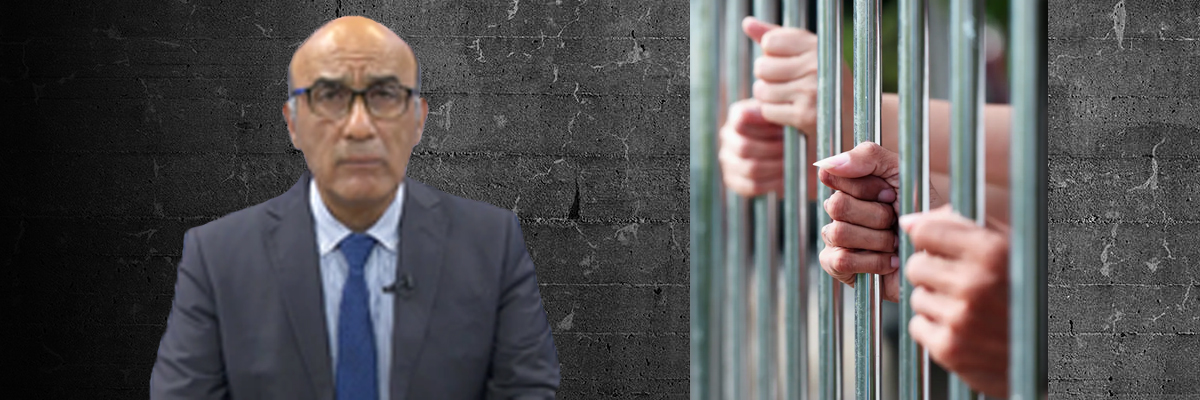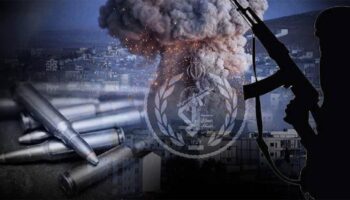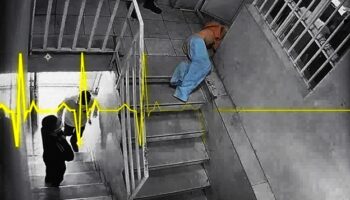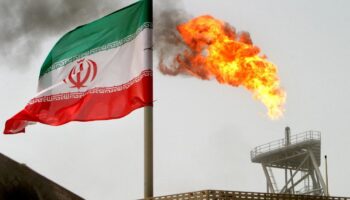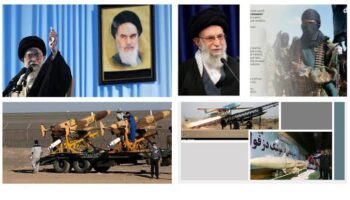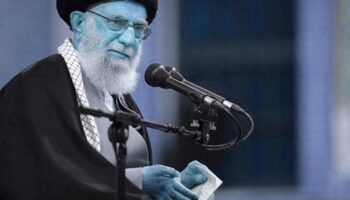‘I chose beatings over solitary confinement’
this is what it was like to be locked up in prison in Tehran
Yahoo News | Mostafa Naderi | 10 September 2021
Last week, leaked surveillance footage showed shocking abuses of prisoners in Iran’s Evin prison. Watching the videos reminded me of my years in Evin – with one notable difference: the guards of my time seemed even more barbaric.
I want to explain why what happened 33 years ago matters today. Iran’s society has changed, but its regime has not – in fact, Iran’s new president, Ebrahim Raisi, is one of the leaders of the horrific 1988 execution of thousands of political prisoners following the supreme leader Ruhollah Khomeini’s fatwa (religious decree).
The past could wibe a pattern for tomorrow, with horrific consequences. For example, years ago, Evin prison guards were like butchers. They used heavy cables to lash prisoners which cut into their skin. Then, if the guards thought someone was too injured by the torture for them to survive, they would simply execute the victim. For the guards, there were no consequences, nothing to worry about.
In Evin prison, we were often blindfolded while being transferred between different sections, in the interrogation room, even under torture. This cruel tactic would create intense fear and panic – when you’re blindfolded, your mind takes over. It’s true that the guards wanted to prevent anyone from witnessing their crimes or seeing their faces but keeping people fearful was very helpful when they wanted to mentally break the prisoners.
Long solitary confinements were another tactic. As political prisoners, we tried to stay connected; but the guards punished any kind of human contact. Even caring for a tortured cellmate carried harsh consequences.
I was held in solitary confinement once for three years, and again for two years. During these endless isolations, memories of everything and everyone you love start to fade, and you can feel utterly alone and empty.
Initially, those of us in solitary confinement used morse code to communicate with each other through the walls. But over time, the regime’s authorities added steel-reinforcement concrete to the walls, so no sound could get through.
In my case, when the isolation became unbearable, I would start kicking the door and making noise. The guards would come and take me out for a beating. But getting hit was a distraction; a savior if you will. The process of fighting the physical pain, going to the medic, and dealing with bandages was better than the never-ending isolation and mental anguish.
In the spring of 1988, the guards wanted me to provide information about a relative. One day in August, due to severe kidney bleeding, I lost consciousness, and a guard took me to the prison’s clinic. When I woke up, I saw bloody IV fluids around me, and my head felt achy. The guy lying next to me told me that my name had been called several times, but since I had been unconscious, I never responded to it.
After several days in the clinic, when I finally returned to my own section, all the cell doors were strangely open, and there were handbags and rucksacks lying next to empty cells. I realised these were the possessions of my friends who had been executed during the massacre. My section was almost empty. The next day, I heard someone calling the guard, saying, “Hey, you’ve forgotten to take me!” When the guard asked the man’s name, he said, “Yaqub Hassani.” The guards took him away, and he was executed the same night.
I grieved for all these people. When you have suffered alongside a group of people for a long time, you have strong feelings for them. When the guards took some people for execution, those who remained had terrible feelings of shock and sorrow.
These were chaotic days – some people didn’t know they were going to be hanged until the very last minute. The guards transferred people around and might even put you on death row only to take you back to the public section. You literally lost track of yourself. I will never know what Yaqub was thinking that day; I just heard him calling the guard.
I was around 17 when I was first interrogated, but I refused to write my friends’ names and whereabouts. I was then told that I was to be executed with a few others. The guards gave me a piece of paper and told me to write down my will. I said I had nothing to say or give to anyone. One night, five of us were handcuffed, blindfolded, put on a bus, and taken to a place inside the prison. As we exited the bus, my friends and I started to sing a popular song known as the anthem of martyrdom.
The guards roared at us to shut up and then pushed us against a wall. We heard someone like a cleric reading our verdicts: “In the name of God the merciful, you betrayers of nation and religion…” and then… fire!
The sounds of bullets piercing and exploding the bricks above our heads were terrifyingly loud. Since we had prepared ourselves for the worst, we all fell down. It was like when you dream and you’re falling down from a high plateau. I felt something like wet, warm blood on the ground, and I thought this was the end. But a few moments later, I heard the guards laughing and hysterically barking: “Is this the way you want to fight Islam?”
It was a mock execution and everyone was still alive… if you can call it that way. We were shoved back onto the bus and driven back to our sections. Due to the shock, we all suffered severe physical and mental symptoms. I couldn’t stop shaking and I later learned that one of my friends became almost blind. Another friend whispered that he could not move his arm anymore and his body was partially lame. He had had a stroke, we later learned.
Back in prison, they sent us to the interrogation room to see if we were broken and ready to surrender. I do not know what happened to the others, but I’m sure that night changed us all. I never raised my voice again.
The 1988 massacre has never ended. As the recently-leaked videos show the oppressive treatment of prisoners in Evin prison hasn’t stopped.
But if you ask me, the international condemnation of the Iranian regime’s abysmal human rights record appears to have halted over the years.
If Raisi is going to be allowed to address world leaders during the UN General Assembly in September, it’s important to remember the audiences he addressed 33 years ago– and what he has done in his career. The world must send a clear rebuke and warning to Tehran. Many lives depend on it.
My generation was called on to bring about a “free Iran”. In Europe, which endured eras of human rights abuses, nations are teaching the lessons of history so new generations can understand what the price of freedom has been and how to hold it dear. I think this is what we need to do in Iran, as well. The next generation should learn about these brutal stories so they too can cherish freedom.
Sometimes people ask me how I endured all that pain, how I survived. But I say that there was something far more important to me than survival.
There were tens of thousands of people that never expected to be seen or heard again, yet they “outlived” the torture. The dictator wanted them to submit and reject their beliefs; he wanted to break them all. Those who remained loyal and brave and said “no” have proved that the regime might kill humans – but can’t break our humanity.
https://uk.news.yahoo.com/chose-beatings-over-solitary-confinement-150803897.html
